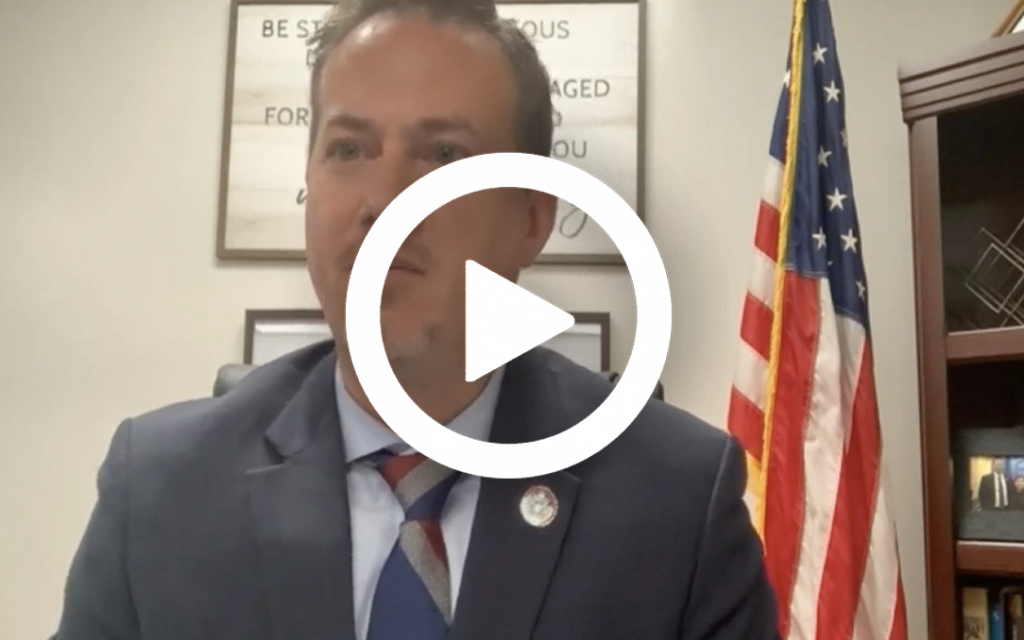Cloud at Organ Transplant Hearing: More Work Remains to Save Thousands More Lives
WASHINGTON—Economic and Consumer Policy Subcommittee Ranking Member Michael Cloud (R-Texas) opened today’s bipartisan hearing on needed reforms in the organ transplant industry by commending patients waiting for a transplant and donors for sharing their stories with the subcommittee and called for more to be done to save thousands of more lives.
At the hearing, Subcommittee Ranking Member Cloud emphasized the United States’ system for organ donation is among the best in the world, but more work remains to improve it. He pointed to the Trump Administration’s efforts to reform the organ procurement system, which resulted in the Centers for Medicare and Medicaid Services issuing a final rule to increase performance standards, and concluded by underscoring the need to scrutinize the entire system, including the roles of hospitals and transplant centers, to ensure meaningful reform.
Below are Subcommittee Ranking Member Cloud’s remarks as prepared for delivery.
It’s great that we get to be here together to work on an issue like this, especially in the context of how we see Congress working often times. It’s great to be able to come together on an issue and work for what’s best for people.
I want to thank the witnesses for being here today. It’s amazing you have the courage to come here today and share your stories. I really appreciate it. It helps put a face on the issues we are dealing with today.
I mentioned it before, I want to thank the chairman and colleagues on the other side of the aisle, as well as those who have joined in this effort, for keeping this a bipartisan issue we can focus on. It’s refreshing. I am excited to see what we can accomplish when we work together on this.
Organ procurement and transplants are not something most people think or talk about every day.
Yet every day, the 107,000 people who are currently on the national transplant waiting list and their families cling to hope that today will be the day they get the call that their life-saving organ is available.
The U.S. system for organ donation and recovery is among the best in the world, but there is a lot work to be done in this space.
In a perfect system, it is estimated that we could recover up to an additional 28,000 organs per year.
That means thousands more lives saved each year and the hopes and dreams of so many will be able to be put into motion.
Though perfection is impossible, striving to ensure we recover and successfully transplant as many organs as possible is literally a matter of life and death for many Americans.
Reports of underperforming Organ Procurement Organizations, or OPOs, began exposing what we now know is a very broken system.
In response to President Trump’s executive order calling for more reforms of the organ procurement system, the Centers for Medicare and Medicaid Services issued a final rule in December. After a brief pause from the Biden Administration and thanks to the chairman and the work of this committee, the Biden Administration, just about a month ago, reissued the rule.
The rule aims to increase performance standards for OPOs and threatens decertification for lackluster performance.
Finalization and implementation of this rule was an important step.
However, OPOs are not the only actor in this system and certainly not the only problem.
Hospitals, which identify potential donors, are inconsistent in how frequently they refer in-hospital deaths to OPOs for evaluation and recovery.
We need to ensure hospitals know when and how to identify potential donors and who they need to contact to coordinate a successful transplant.
We also need to work to ensure that overlooked people and overlooked places have greater access, including increasing diversity of organ availability within minority communities especially and improve access and address many of the logistical challenges for rural communities as well.
The ever-growing waitlist for organs is complex and at times difficult to get onto—way too complex.
We need to ensure individuals who are eligible to get onto the waitlist are on the list so when a potential donor is identified, a recipient can be matched.
Transplant centers face complications with insurance companies and certification for making medically sound decisions for their patients.
That makes these centers understandably risk averse, but that means viable organs are being discarded rather than utilized, which, of course, means lives lost. We need to change that.
We need to ensure transplant centers are able to quickly and accurately assess each organ offered to their patients for a potential transplant.
Perhaps today, with the patients, OPOs, and transplant centers represented on our witness panel, we can begin to examine how to fix this system.
We must scrutinize this system in its entirety in order to truly bring about meaningful reform. Thanks to the chairman and this committee for tackling this issue. And, thank you very much to the witnesses for being here to both share your stories and to get into the nuts and bolts of this issue.
